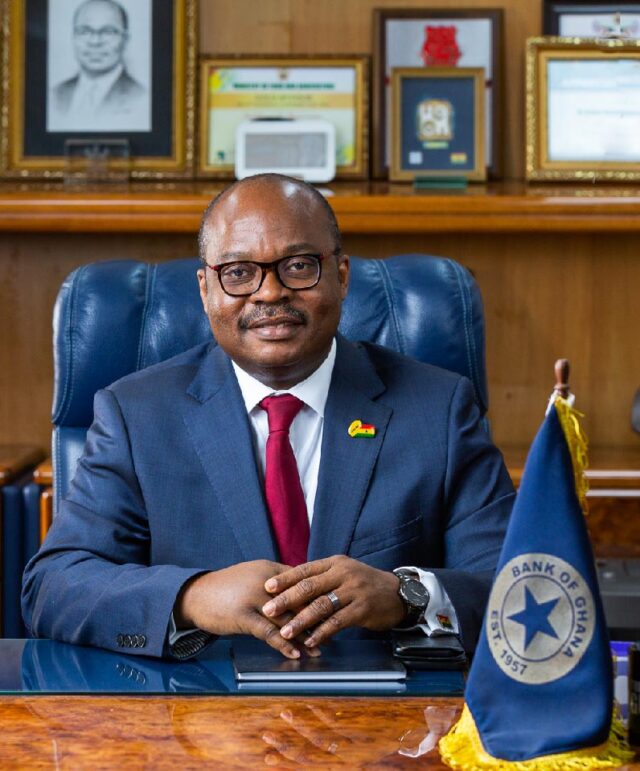The Bank of Ghana (BoG) Governor, Dr. Ernest Addison, has underscored the crucial role factors such as comprehensive and harmonised financial data will play in achieving enhanced economic integration and shared prosperity across West Africa and the broader continent in the medium-term.
During the 43rd Joint Ordinary Meeting of the Technical Committees West African Monetary Agency (WAMA) opening in Accra, the central bank Head called for a renewed focus on what he described as ‘low-hanging fruit’ – which include unified payment systems – he stated that member-states must be deliberate on strategies to achieve monetary integration and bolster financial stability, adding that such a move would expedite progress toward regional economic goals.
“We need to pay equal attention to other key areas of the Roadmap. For instance, to what extent have we unified our payment and settlement systems? To what extent have we harmonised statistics in the region? These are the low-hanging fruit,” he said in a speech read on his behalf by the BoG’s Director of Research, Dr. Philip Abradu-Otoo.
Dr. Addison acknowledged the challenges facing West African nations in meeting convergence criteria for launching the ECO, a common currency for the Economic Community of West African States (ECOWAS). He noted that despite the disruption caused by the COVID-19 pandemic and subsequent shocks like the Russia-Ukraine war, regional economies must strive for macroeconomic stability and fiscal sustainability.
This, he noted, has attained added importance as recent shocks in the region – including soaring commodity prices and inflation – have led to policy-tightening and raised borrowing costs, which have in turn compounded fiscal and debt sustainability concerns in some countries
Interconnected supervision
The theme of interconnectedness was similarly shared by the Director General-West African Monetary Institute (WAMI), Olorunsola E. Olowofeso, who called for enhanced cooperation and strengthened cross-border banking supervision.
Highlighting the critical role of financial institutions in the sub-region, he argued that there is an urgent need to safeguard the shared financial system from potential threats.
“We must pay close attention to banks in the zone that could pose a threat to the safety and soundness of our shared financial system due to the interconnectedness and cross-border activities of financial institutions,” Mr. Olowofeso remarked during a meeting for the College of Supervisors-West African Monetary Zone (CSWAMZ), which occurred concurrently.
To address these challenges, WAMI in collaboration with the West African Monetary Agency (WAMA) announced a comprehensive project aimed at strengthening cross-border banking supervision among member-states under the Financial Sector Assessment Programme (FSAP) of the ECOWAS Monetary Cooperation Programme (EMCP).
“The increasing number of cross-border banks within the sub-region necessitates the harmonisation of a cross-border supervisory and regulatory framework. We must address existing cross-border risks and spill-overs to ensure a stable financial environment,” he added.
A key focus of the discussions was the necessity to strengthen compliance with Basel capital requirements, to ensure that banks within the WAMZ maintain adequate capital buffers for their operations – ultimately safeguarding the financial system’s soundness.
In response to these imperatives, WAMI has already established an expert committee composed of representatives from member states – with WAMI serving as the secretariat. This committee has been actively working to develop a roadmap for implementing the Basle II and III capital framework, ensuring that it aligns with the specific needs and circumstances of member-states.
Locally, banks – on account of the domestic debt swap – have submitted recapitalisation plans to the apex bank even ahead of the anticipated operationalisation of the US$750million Ghana Financial Stability Fund.
On his part, the Director-General of WAMA, Momodou Bamba Saho, highlighted economic integration as a vital cornerstone of regional stability and cohesion – and stressed the urgency of their mission.
He however acknowledged the evolving geopolitical landscape and its potential implications for monetary integration efforts, emphasising the importance of maintaining a focus on economic convergence.
This comes as the updated roadmap for launching the ECO and a new Macroeconomic Convergence and Stability Pact (MCSP) by the ECOWAS Heads of State and Government requires member-states to meet all the primary convergence criteria by December 31, 2026.
The period from 2024 to 2026 is deemed critical for achieving these objectives.
Already, the assessment of regional economies for 2022 revealed that no memberstate met all four primary convergence criteria; and only four met at least three criteria. Additionally, no member-state is expected to meet all four criteria in 2023 – prompting suggestions of a readiness assessment for the ECO’d launch in 2027.
Concerns linger that economic activity in Western and Central Africa could fall short of the expected growth rate of 3.4 percent and 3.9 percent in 2023 and 2024 respectively, due to geopolitical tensions.
SOURCE: B&FTonline.com









![Ayra Starr unveils her own dolls [VIDEO]](https://mx24online.com/wp-content/uploads/2024/07/132420163_4.ceremonialcapdenkyemkyetrusteesofthebritishmuseum-100x75.webp)